As the 2023 duck shooting season approaches, game bird hunters in New Zealand are gearing up for an exciting and rewarding experience. Whether you’re an experienced hunter or a beginner looking to try your hand at this popular sport, it’s essential to understand the rules and regulations surrounding the season. In this blog post, we will discuss the required licenses and the important rules and regulations for the upcoming duck shooting season in New Zealand.
Licenses and Pricing
To participate in the duck shooting season, hunters must obtain the appropriate game bird licenses. The licenses for the 2023 season in New Zealand are priced as follows:
Adult Game Bird Licence
Whole Season ($107) / Day ($25 from May 15th)
This license is for adults aged 18 and over on 06/05/2023. It offers the greatest versatility and is suitable for most game bird hunters.
Junior Game Bird Licence
Whole Season ($25) / Day ($9 from May 15th)
Designed for juniors between the ages of 12 and 17 on 06/05/2023, this license provides young enthusiasts with an opportunity to join in the hunting experience.
Child Game Bird Licence|
Whole Season ($5)
For children aged 11 and under on 06/05/2023, this license allows young children to accompany adult hunters and enjoy the outdoor environment.
>> To purchase your game bird license click here
Rules and Regulations
It is important to adhere to the rules and regulations set forth by the Department of Conservation (DOC) to ensure sustainable hunting practices and the preservation of bird populations. Here are some key regulations to be aware of:
Season Dates: The 2023 duck shooting season in New Zealand will take place from May 6th 2023, in most parts of the country. It is crucial to hunt only within the specified season dates and times. >> To check regional dates click here.
Bag Limits: Hunters are subject to bag limits, which restrict the number of birds that can be taken during a single day of hunting. The bag limits for the duck shooting season vary depending on the species. It’s important to check the specific regulations for each species, as bag limits can change from year to year. >> To check specific bag limits click here.
Species Identification: Accurate species identification is essential to comply with the regulations. Make sure you can differentiate between protected and game bird species. Shooting protected species is strictly prohibited.
Firearm Safety: Safety is paramount in any hunting activity. Always handle firearms responsibly, ensure the safe use of ammunition, and be mindful of other hunters and individuals in the vicinity.
Non-Toxic Shot Regulations: The use of non-toxic shot is mandatory when hunting waterfowl and other game birds. This regulation aims to protect the environment and wildlife from the harmful effects of lead shot. Hunters must comply with the following non-toxic shot requirements:
Material: Only non-toxic shot, such as steel, bismuth, tungsten, or other approved alternatives, can be used. The use of lead shot is strictly prohibited.
Shot Size: Hunters must use shot sizes suitable for the game bird species they are targeting. It is important to choose shot sizes that ensure a clean and ethical harvest while minimizing the risk of lead poisoning in waterfowl.
Compliance Check: Hunters should ensure their ammunition meets the non-toxic shot regulations by purchasing approved non-toxic shot cartridges from authorized retailers. Random checks may be conducted to ensure compliance with these regulations.
The upcoming duck shooting season in New Zealand promises exciting opportunities for game bird hunters of all ages. By obtaining the appropriate licenses, understanding the rules and regulations, and adhering to bag limits, hunters can enjoy a safe and memorable experience. Remember to always prioritize safety, respect the environment, and follow sustainable hunting practices. Happy hunting!


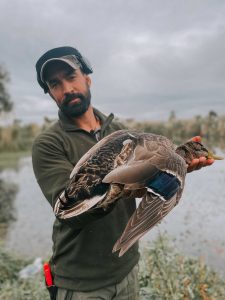
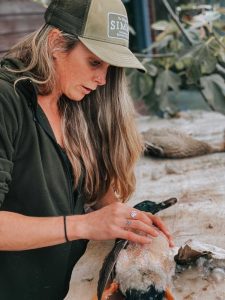
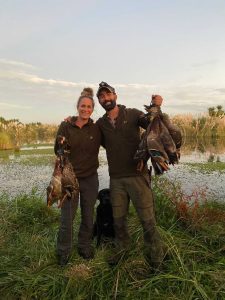
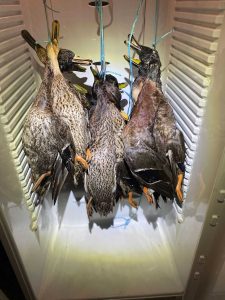

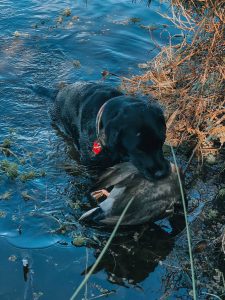
Looking for more to read?
SADDLE UP SAFELY: Riding Tips for Exploring the Farm
Aug
MASTERING HUNTING PHOTOGRAPHY: Tips, Gear, and Techniques
Jul
TOP 10 ESSENTIALS: Hunting Gear for the New Zealand outdoors
Jun
BEGINNER’S GUIDE: Downhill Mountain Biking in New Zealand
Jun
HORSE TREKKING ADVENTURE TO LOCKHARTS: Exploring Canterbury’s Private Land with OutdoorHQ
Jun
DISCOVER THE JOY OF TROUT FISHING: A COMPREHENSIVE GUIDE
May
TOP TIPS FOR COOKING IN A CAMPERVAN: NEW ZEALAND ROAD TRIP
May
HUNTING WITH KIDS IN NEW ZEALAND: 7 REASONS TO GIVE IT A TRY
May
EXPLORING THE BEAUTY OF FRESHWATER FISHING WITH OUTDOORHQ
May
NZ DUCK SHOOTING SEASON 2023: LICENSES, RULES, & BAG LIMITS
May
ENHANCE YOUR DUCK HUNTING: NEW ZEALAND 2023 SEASON TIPS
Apr
THE THRILL OF HORSE TREKKING IN NEW ZEALAND
Apr
THE PERKS OF PARKING YOUR CAMPERVAN ON PRIVATE LAND IN NEW ZEALAND
Mar
DISCOVER NEW ZEALAND’S HIDDEN TRAILS: MOUNTAIN BIKING ON PRIVATE FARMLAND
Mar
OFF THE BEATEN TRAIL: HORSE TREKKING ON PRIVATE FARMS IN NEW ZEALAND
Mar
HOW TO SAFELY HUNT FOR YOUR FIRST STAG
Mar
WHY LESS HUNTING ACCIDENTS HAPPEN ON PRIVATE LAND
Mar
DO THE RIGHT THING AND REDUCE HUNTING ACCIDENTS IN NZ
Mar
BE RESPECTFUL TO FARMERS THIS ROAR SEASON
Feb
GUIDE TO BAGGING A STAG THIS ROAR SEASON
Feb
THE BENEFIT OF HUNTING ON PRIVATE LAND DURING THE ROAR
Feb
INTRODUCTION TO THE ROAR SEASON IN NEW ZEALAND
Feb
PART II: LINBURN FARM STAY, A GIFT FROM GISBORNE
Jan
PART I: LINBURN FARM STAY, A GIFT FROM GISBORNE
Jan
PART II: HUNTING THE HAWKES BAY HIGHLANDS
Jan
PART I: HUNTING THE HAWKES BAY HIGHLANDS
Dec
FILL THE FREEZER…SHARE YOUR CATCH
Nov
WILD FOOD DEGUSTATION
Nov
THE WILD VENISON BANQUET
Nov
RAYONIER MATARIKI FORESTS – CASE STUDY
Oct
WELCOME TO BLUE MOUNTAINS HUNT BLOCK
Oct
HUNTING DOESN’T HAVE TO BE DIFFICULT
Sep
FILL THE FREEZER….FOR FREE!
Sep
THE REALITY OF PRODUCING WILD FOOD
Sep
TAKE A SEAT AT THE WILD TABLE
Sep
THE FISHING PAPER & HUNTING NEWS
Jun